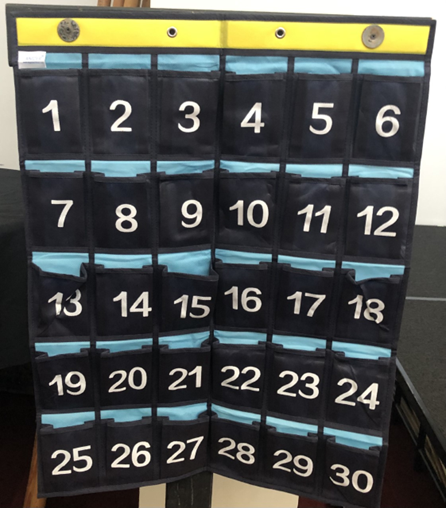What BT Students and Teachers Think about the Cell Hotel Policy

A “cell hotel,” where students place their phones during class.
November 6, 2022
This year, Beth Tfiloh has decided to institute a cell hotel policy, requiring students to place their phones in a cell hotel before every class. Twelve students and four teachers offered their opinions on this policy. All students decided to remain anonymous in this article. Let’s see what they had to say:
83.3% of students interviewed (10/12) disagreed with the policy. 8.3% (1/12) supported it, while the other 8.3% (1/12) possessed no particular disposition towards it. Students offered a variety of negative comments about the policy.
Although using one’s phone in class “has been tempting a few times,” 66.6% of students in high school last year (4/6) agreed that before the school instituted the policy, “I wouldn’t use [my phone] unless it was needed… in class.” Other students were not directly asked that question, but none admitted to frequently using their phones in class before the policy. “It doesn’t matter whether we have [our phones] or not… because people won’t take out their phones either way,” a 9th grader commented. According to a 10th grader, a phone “has proven some… alternatives in case you don’t have a laptop that day,” or, as another 10th grader highlighted, can expedite tasks related to the class, such as “assignments where you need to calculate things or search up… measurements and conversions.”
Many students mentioned forgetting their phones in classrooms. One 10th grader leaves their phone in a classroom “a couple times a week.” They “have one friend… who will steal [my phone] and then I have to find him or go to his classroom.” They also added, “it’s easy to forget to put them in the phone hotel.” When asked if any inconveniences arose with retrieving a forgotten phone, another 10th grader replied, “Yes. When you forget, you don’t remember… the split second after, so it takes time and therefore you… either have to get it after the class or just before the bell rings… but there’s already a bunch of people already waiting in the classroom and therefore you have to walk into unknown territory, if you will.” An 11th grader knew people who “had to leave another class that they were learning in to go to a different classroom to get their phones.”
Four students expressed discomfort with the notion of “taking away something that’s your own property and putting it somewhere else… without your consent.” For a 9th grader, keeping their phone in class “makes me feel like I have freedom.” A 12th grader claimed the school should “treat high schoolers as adults… the teachers should put the trust into the students,” since “when you’re in college… they don’t take your phones in class… it’s up to you to pay attention.” They also added, “if they go on their phones, [the teacher could say] ‘put your phone away… we’re in class right now’” without necessarily confiscating the phone immediately. Only “if you’re not going to use your phone responsibly in class, then the teacher [should] take it away,” according to another 12th grader.
Despite the multiplicity of negative feedback from students on the cell hotel policy, one 10th grader supported it. “It helps students focus their attention towards the teacher who is lecturing the class, rather than… on their phones, being distracted by all the possibilities.”
In contrast to the majority of student opinions, all teachers who participated agreed with the cell hotel policy. Before the policy was instituted, in response to students using phones in class Mr. Monroe would “take their phones and give them to the office. So I was pretty strict but… they were always fighting me on it.” When asked how keeping phones during class affected students’ learning, he replied “if you can’t focus, you can’t learn… [when you have your phone in class] your mind is on… your latest… text from your good friend and you’re thinking about that instead of thinking about history.” Now, the policy “takes a distraction out of my classroom.” He added that with the policy, “I don’t have to stop and start class because somebody’s got their phone. It just allows the flow of the class to go better.” Mr. Monroe observed only one minor downside to the policy: “before… I would say ‘would somebody pull out their phone and find us the answer’ to some question or word we didn’t [know],” but now with the hotels, this becomes more difficult.
Mrs. Schneyer also agrees that the policy “is taking away the distractions.” She noticed that “some students like to use [their phones] to kind of help them along, but [the policy] takes all of that away, so they’re able to… do the learning on their own rather than using that as a crutch.” According to her, removing phones from the classroom encourages students to “[use] the resources in the classroom, focusing on the lesson and what they can bring to the table… rather than going to their phone.” Before the policy, “[students] always had their phones near them. I would take them away at times… but yes, they were always there, somehow or another, they were always an issue in class.”
Mr. Acheson compared his previous experiences in teaching with Beth Tfiloh’s phone policy. “In my experience at previous schools, once you’ve established the kind of ethos to make sure kids have [their phones] put away, they usually have them put away. But then there were times when… they did somewhat break the rules, and then you had to become not a teacher but a policeman.” He added that “classes here are 50 minutes, less than an hour, and so the time is really valuable. I think teachers… feel the time is kind of precious, and so they want the students’ attention directed toward them, but also toward each other – so the students are actually learning from each other and from the teacher as much as they can in that limited amount of time.”
Lastly, Mr. Schwartzman supports the policy because “it gets rid of the phones so the students have less distractions… because students can concentrate, it’ll improve their grades, it’ll improve their focus in the classroom and overall understanding of the subject.”
Evidently, students and teachers at BT exhibit a variety of opinions on the cell hotel policy. Most students disagree with the policy, while teachers mainly agree with it. What do you think about the cell hotel policy?

